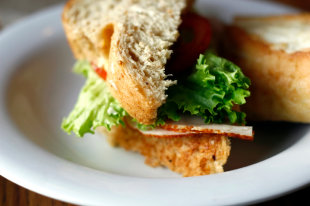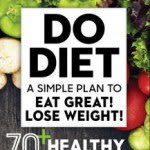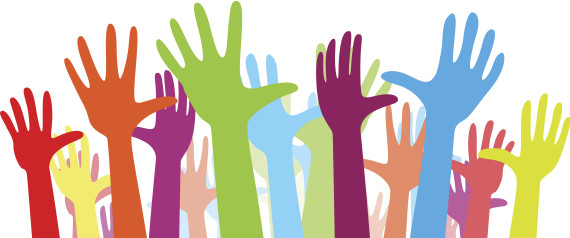By Natasha Turner, ND | Chatelaine – Fri, 24 Jan, 2014 8:00 AM EST
This article was originally published in Yahoo Shine

Not only do cold cuts have high sodium content, whole wheat bread can also be alarmingly high. (Photo, Istock.)
With more than 75 percent of adults consuming almost twice the recommended amount of sodium per day (Health Canada reported the average Canadian adult consumed 3,400 mg of sodium per day in 2012), the effort by government agencies and health care professionals to promote awareness of the health risks associated with excess salt intake is no surprise. In Canada it’s recommended that adults 14 to 50 years old consume 1,500 mg per day. At age 51 that number drops to 1,300 mg per day.
Despite this info I must confess that this flavour-enhancing seasoning is a true love of mine. I readily add it to my meals without tasting one bite. But even I, a self-admitted salt-aholic, was astonished after looking deeper into the matter as unexpected foods and products lurking with ladles of hidden sodium were uncovered. Here are the top five ways to skip sneaky sources of salt that may be sabotaging your health.
1. Medication
Yes, it's true. This study from the University of Dundee in Scotland explains that taking the maximum daily dose of some medicines would exceed the recommended daily limits for sodium, without changing anything in your diet. The study compared 1.2 million patients taking sodium-based medication with those who took non-sodium medication, resulting in over 61,000 incidents of cardiovascular events. Overall, the researchers found that patients, “. . . taking the sodium-containing effervescent, dispersible and soluble medications had a 16-percent-increased risk of a heart attack, stroke or vascular death compared with other patients taking the non-sodium versions of those exact medications.”
Bottom line: Ask your doctor if the sodium levels in your medication will affect your health. If you are prescribed a high-sodium medication, ensure that you're being carefully monitored during the process.
2. Cottage cheese
You've probably heard that cottage cheese is a healthier protein option, and the rumours are true! However, some versions of this dieters’ dream protein can contain more than 900 mg of sodium per cup. Yikes!
Bottom line: If cottage cheese is your protein of choice, opt for the low-sodium options to slash the sodium in half. You can also try swapping the curds for natural, plain zero-percent Greek yogurt for only 70 mg of sodium per 3/4 cup or ricotta cheese that contains very little sodium per serving.
3. Breakfast foods
Nothing is better than morning energy! Reaching for your favourite box of cereal paired with low-fat milk and berries can offer you a fibre-rich, nutritious meal. However, many cereal brands can also lend an overdose in sodium. With a common range of 170 to 300 mg of sodium per serving, it's worth taking a better look at each label. A 2013 study looking at Kellogg and General Mills showed these companies have made efforts to reduce sodium levels in their cereals, but there’s a long way to go before all brands jump on-board.
Not a cereal person? Don't jump to frozen alternatives just yet. Four frozen pancakes can pack up to 740 mg of sodium, putting up some good competition for home fries.
Bottom line: If you can't get out of the cereal habit look for low-sodium options such as shredded wheat brands or plain oats. Add some high-antioxidant fruit such as blueberries with low-fat milk to reap great additional benefits and keep your insulin levels low.
4. Sports drinks
You've probably heard that sports drinks can pump unnecessary amounts of sugar into your bloodstream, but that's not the only ingredient that overwhelms our bodies. When we sweat our bodies naturally get dehydrated by losing electrolytes (salt). This explains the large portions of fuel professional athletes guzzle during a game - it quickly replenishes their fluids to give them more energy. Unfortunately, shopping for shoes doesn't add up to the same expenditure for us everyday people. Most of us don’t even sweat enough during a half-hour workout to justify these high-sugar, high-salt drinks.
Bottom line: If your body doesn't need to replenish its electrolyte count, you're consuming additional calories and close to 450 mg of sodium per litre. Try to rehydrate your body with water throughout the day to keep your body quenched.
5. Vegetable juice
Why eat your vegetables, when you could drink them, right? Before you swear off broccoli forever, check the label before you chug. One-hundred-percent vegetable juices can still contain upwards of 500 mg of sodium, making any of the benefits not worth the liquid option. This 2013 study proves that salt levels in food are higher than ever, so it is up to us to make the smart decision.
Bottom line: Believe it or not, raw vegetables contain sodium too. The good news is, it's not a harmful amount, so you can always count on the real deal to be the healthiest option. The benefit of pressing your own juice means absorbing all the nutrients, with no added chemicals like potassium chloride. If vegetable juice is the only option, grab the low-sodium version.
6. Whole wheat bread
Whole wheat bread is a staple for many health-conscious people because its high fibre, helps to lower cholesterol and prevent heart disease. Whether you're making toast, sandwiches or getting crafty with croutons, its benefits trump the white stuff. Unfortunately, sodium is finding its way into a lot of whole wheat bread brands in amounts that average 240 to 400 mg per slice. If your serving usually contains two slices, the sodium can add up quickly.
Bottom line: Take the extra time to read labels, and aim for 100 percent whole wheat breads that contain 170 mg of sodium or less per slice. This will allow your body to benefit from the nutrition while keeping your sodium levels down. As a tip, check to make sure whole wheat flour or whole grain is the first ingredient on the nutrition label, and other ingredients such as sugar or salt aren't sneaking in.
Not feeling so hot? Here are some signs that you've had too much sodium:
1. Bloating
Excessive salt can cause uncomfortable bloating. When the body is retaining salt it tries to break it down by holding onto water. The most efficient way to solve this problem is to drink even more water! This will help flush out the salt as fast as possible, which will help your belly and stress go down.
2. Thirst
One of the largest signs of high sodium levels is chronic dehydration in the body. Excessive sweating in combination with small fluid intake will lead to dehydration very quickly, which can lead to larger issues. The thirst you're feeling represents your body trying to balance your sodium and fluids in the body.
3. Dizziness
Changes in your blood pressure will occur when high levels of sodium are lurking in your body. This is especially obvious when you stand up and feel dizzy or experience "blacking out." Continue to take it easy, and pound the H20.
4. Gastrointestinal symptoms
When sodium levels increase, you may experience some uncomfortable symptoms. Unfortunately, our bodies don't react well to imbalanced fluids resulting in nausea, vomiting and severe sweating. The more dehydrated your body gets, the greater the chances of this happening. To ensure you stay well hydrated, drink eight to 10 glasses of water per day, even when you don't feel thirsty.
Natasha Turner, N.D., is a naturopathic doctor, Chatelaine magazine columnist and author of the bestselling books The Hormone Diet, The Supercharged Hormone Diet and The Carb Sensitivity Program. She's also the founder of the Toronto-based Clear Medicine Wellness Boutique and a regular guest on The Dr. Oz Show and The Marilyn Denis Show. For more wellness advice from Natasha Turner, click here.

It's the new year, and you know what that means: no more excuses. It's easier than ever to get back on track with our new Do Diet ebook. Our dietitian-approved meal plan, great weight-loss tips and easy-to-do-anywhere workouts will help you drop a dress size in just a few short weeks and get you swimsuit ready by spring.
Available on the iBookstore, Kobo and Amazon.
More from Chatelaine:
Connect with Chatelaine:











![graphic_100reasonstoworkout[1] graphic_100reasonstoworkout[1]](https://blogger.googleusercontent.com/img/b/R29vZ2xl/AVvXsEibzpTEWT1gbVhqSc-5pLc7wNMT-V38TbWrA_yrc7KGlR-wi-1bOclw-pafPumXSjsAhkYMGII6NlprfBkTqt3dbscuvQ7EgPP6MYJe0y7XjWz3KgElBKDoDG0MZoDnlKUZpKN2yMzoP_dN/?imgmax=800)